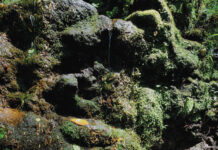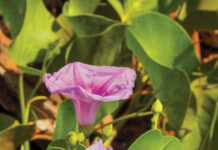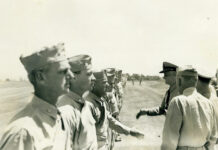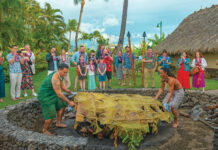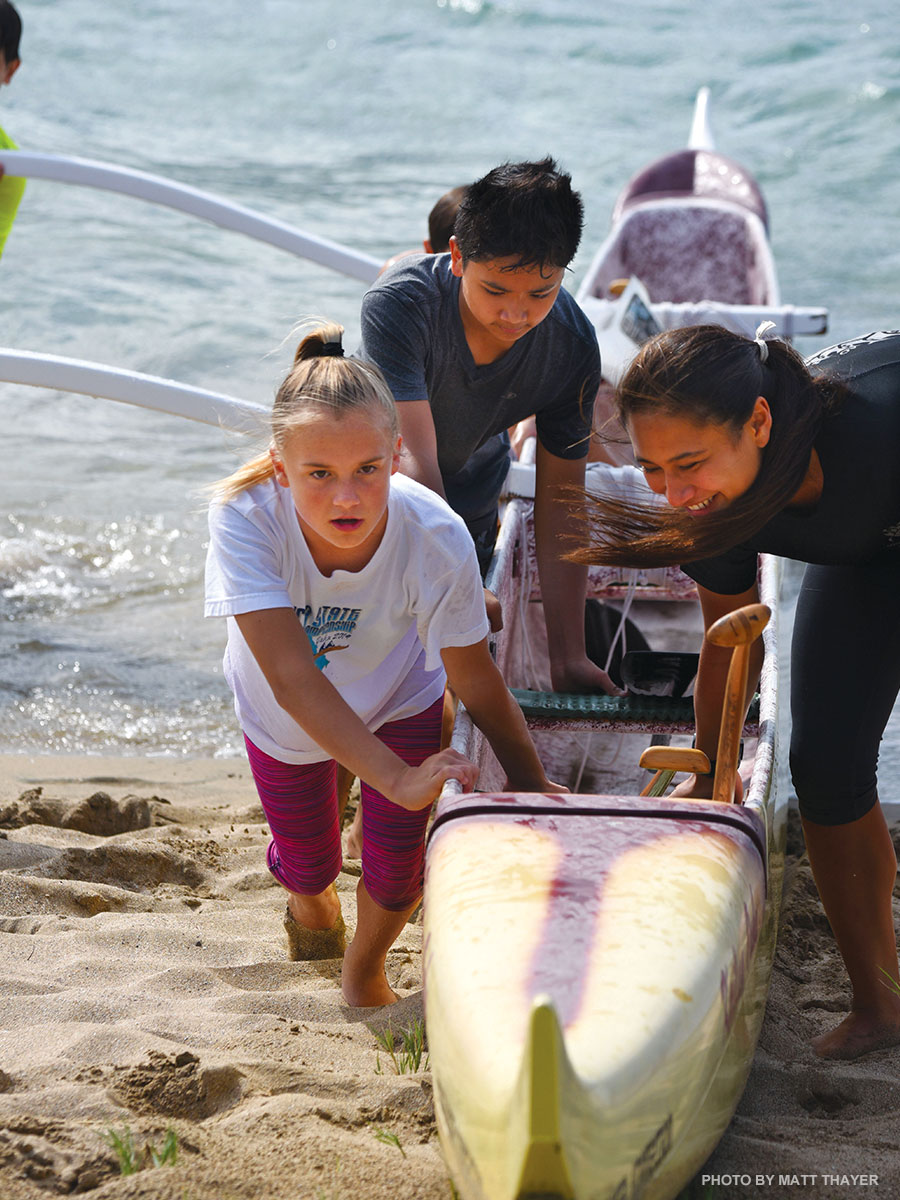
Leaders use traditional Hawaiian methods to convey lessons that range from ancient legends to the components of an outrigger canoe. Each year concludes with a sold-out show at the King Kamehameha Golf Course’s Grand Waikapu Ballroom, where participants perform oli and hula they have spent seven weeks learning and sharpening. “The goal is to build character and self-confidence, but also to give these kids some perspective and respect for the culture,” Gerry says. “We get kids from all over the island. They develop their paddling skills and also their friendships with kids from other schools, other towns. They’re competitive on the water, but they are friends and family on the land.”
Kamali‘i’s success can be measured on a variety of levels. Administrators point to youngsters who have gone on to be the first from their families to attend college. There are also disadvantaged and homeless children who have found direction and camaraderie through the program. Its focus on developing thoughtful leaders pays dividends across Maui.
“The Kamaliʻi Program is practically my home during the summer,” says twelve-year-old steerswoman Nohealani Ledesma. “I’ve learned so much that a lot of people think I’m in Hawaiian Immersion. When I hang out with my Hawaiian friends, I speak Hawaiian with them.”
Longtime Kamaliʻi participant Traesyn Shimoda says it is powerful to respect the environment as well as the ancestors. “Everything we do is to benefit or to learn about the Hawaiian ways. When we go to Lanaʻi, we go to this waterfall, and you can feel the mana [divine power] around it.”
Lando Kahalehau, thirteen, says the program has helped him get in touch with his Hawaiian roots.
“You get a lot of experience and you want to learn more,” he says. “I am amazed at what the Hawaiians did and how they did it. I feel proud to be Hawaiian.”
That cultural resonance may help explain the club’s rise to dominance in the Hawaiian Canoe Racing Association’s annual State Championship Regatta. Riding the strength of its junior-division crews to build large early leads, the club has earned twelve state titles in the past sixteen years. Hawaiian has also won every Maui County Hawaiian Canoe Association championship since 1985. The club’s teen crews won thirteen medals at the 2014 Vaʻa World Sprint Championships in Brazil, and also fare well each year while competing in Tahiti.
The unprecedented success of a neighbor-island club in a sport long dominated by crews from Oʻahu leaves many folks around Hawaiʻi scratching their heads, wondering how Hawaiian does it. Like many great outcomes, this one had humble beginnings, a nexus of the right people, and a canoe full of dedication and hard work.

